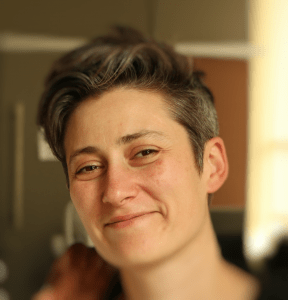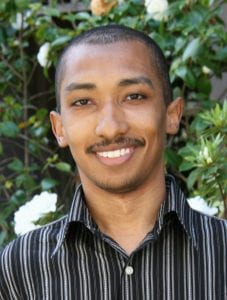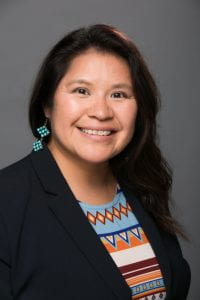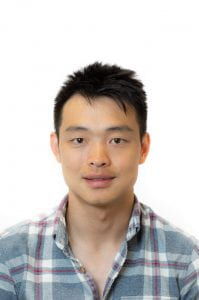Moon Duchin, Ph.D.
Gerrymandering
http://mduchin.math.tufts.edu/
Moon Duchin is a mathematician at Tufts University, where she is also affiliated with the programs on Science, Technology, and Society; Women, Gender, and Sexuality; and Race, Colonialism, and Diaspora. Her mathematical background is in geometry, topology, group theory, and dynamics. For the last five years she has been working on applications of geometry and computing to the study of U.S. redistricting, as part of a broader program in math for civil rights. These days her lab at Tisch College of Civic Life has a range of projects from Markov chains for gerrymandering to statistical models of ranked choice voting to differential privacy in the Census.
Lester Mackey, Ph.D.
Statistics for Social Good
https://web.stanford.edu/~lmackey/
https://stats-for-good.stanford.edu/
Lester Mackey is a machine learning researcher at Microsoft Research, where he develops new tools, models, and theory for large-scale learning tasks driven by applications from healthcare, climate forecasting, recommender systems, and the social good. Lester moved to Microsoft from Stanford University, where he was an assistant professor of Statistics and (by courtesy) of Computer Science. He earned his PhD in Computer Science and MA in Statistics from UC Berkeley and his BSE in Computer Science from Princeton University. He co-organized the second place team in the $1M Netflix Prize competition for collaborative filtering, won the $50K Prize4Life ALS disease progression prediction challenge, won prizes for temperature and precipitation forecasting in the yearlong real-time $800K Subseasonal Climate Forecast Rodeo, and received a best student paper award at the International Conference on Machine Learning.
AI-Enabled Healthcare / Global Health
http://www.cs.cornell.edu/~chinasa/
Chinasa Okolo is a third-year Ph.D. student in the Department of Computer Science at Cornell University, co-advised by Bharath Hariharan and Nicki Dell. Her research leverages recognition techniques in computer vision to improve mobile healthcare in low-resource regions for the rapid diagnosis of infectious and tropical diseases. She also works on research projects to analyze the applications, implications, and perceptions of AI-enabled healthcare deployed throughout the Global South and North. Chinasa co-organizes the Mechanism Design for Social Good (MD4SG) working group on development where she leads collaboration and discussion amongst practitioners and academics to understand and tackle issues pertaining to the role of technology in emerging nations and under-resourced settings. Her work has been supported by funding from The National GEM Consortium, Oracle Corporation, and the North American Network Operators’ Group (NANOG). Chinasa holds a Bachelor’s degree in Computer Science from Pomona College and has previously interned at Microsoft Research in Cambridge, England where she developed computational models and domain-specific computational tools for bacterial quorum sensing.
 Saiph Savage, Ph.D.
Saiph Savage, Ph.D.
Human Computer Interaction / Civic Technology
Saiph Savage is the co-director of the Civic Innovation Lab at the Universidad Nacional Autonoma de Mexico (UNAM). Her research involves the areas of Crowdsourcing, Social Computing and Civic technology. For her research, Saiph has been recognized as one of the 35 Innovators under 35 by the MIT Technology Review and is a Google Anita Borg Fellow. Her work has been covered in the BBC, Deutsche Welle, and the New York Times. Saiph frequently publishes in top tier conferences and journals, such as ACM CHI, ICWSM, the Web Conference, and ACM CSCW, where she has also won honorable mention awards. Additionally, her research has been presented and adopted by presidencies in Latin America to drive better citizen-government collaborations. Saiph has received grants from the National Science Foundation, as well as funding from industry actors such as Google, Amazon, and Facebook Research. She has collaborated and given talks with civic organizations, such as, the National Democratic Institute, the Canadian Institute for Advanced Research (CIFAR), and the Aspen Institute. Saiph is also a visiting professor at the Human-Computer Interaction Institute at Carnegie Mellon University (CMU) and research professor at West Virginia University where she directs the Human Computer Interaction Lab. Saiph holds a bachelor’s degree in Computer Engineering from the National Autonomous University of Mexico (UNAM), a masters and Ph.D. in Computer Science from the University of California, Santa Barbara (UCSB). She has been a tech worker at Microsoft Bing and research scientist at Intel Labs.
Suzanne Singer, Ph.D.
Clean & Renewable Energy
https://www.nativerenewables.org/
https://www.facebook.com/nativerenewables/
https://twitter.com/power4natives/
https://www.instagram.com/nativerenewables/
Suzanne Singer is a co-founder and program manager of Native Renewables, an organization focused on solving energy access challenges for Native American families who lack access to grid-tied electricity. Prior to that, Singer supported energy security projects at Lawrence Livermore National Laboratory. Singer is the winner of the 2019 U.S. Clean Energy Education and Empowerment (C3E) Entrepreneurship Award, and has a PhD and MS in Mechanical Engineering from the University of California, Berkeley, and a BS from the University of Arizona.
Ellen Zegura, Ph.D.
Computer Science for Social Good
https://www.cc.gatech.edu/~ewz/Welcome.html
https://www.gtcssocialgood.com/
Dr. Ellen Zegura is Regents’ and Fleming Endowed Professor of Computer Science at Georgia Tech. She works in two primary areas, computer networking and computing for social good. In computer networking, she is known for her work on Internet topology tools and for inventing the message ferries for communicating in sparse networks. Her work in computing and social good includes work in Liberia with the Carter Center, with Native Americans in the Southwest, and with residents of the Westside of Atlanta. In education she is co-creator of the GT Serve Learn Sustain initiative, which prepares students to use their disciplinary skills to create sustainable communities. She co-led the Civic Data Science summer internship program, an NSF-funded Research Experience for Undergraduates site that has trained more than 70 students. She is a Fellow of the IEEE and ACM, and currently serves as elected Chair of the Computing Research Association Board.
Data Science Education / Criminal Justice Reform
Kao is a software engineer at Stripe, and was previously a data scientist at Quora. He grew up in Singapore where the execution rate and support for the death penalty is amongst the highest in the world.







